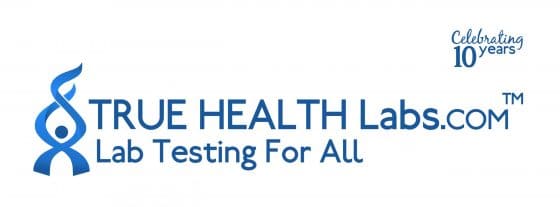Table of Contents
- Introduction
- Background of tTG Tests
- Significance in Traditional and Functional Medicine
- Why Opt for tTG Testing?
- Understanding Your Health Through tTG Testing
- Ordering the tTG Test
- Interpreting tTG Test Results
- Where Can I Order The tTG Test On TrueHealthLabs.com?
- What Other Lab Tests Are Related to Tissue Transglutaminase?
- Conclusion
- Frequently Asked Questions
Key Points
- Tissue Transglutaminase Tests: Essential for diagnosing celiac disease.
- tTG IgA and IgG Antibodies: Indicators of immune response to gluten.
- Role in Health: Helps understand and manage celiac disease and related symptoms.
- Traditional and Functional Medicine: Used for comprehensive health assessment.
- Importance of Early Detection: Prevents complications and improves life quality.
- Consult Healthcare Professionals: For accurate interpretation and guidance.
Tissue Transglutaminase (tTG) IgA and IgG Tests: Understanding Their Role in Celiac Disease Diagnosis
Introduction
As an experienced health content writer, I am committed to providing accurate and insightful information about the Tissue Transglutaminase (tTG) IgA and IgG tests. These tests play a crucial role in diagnosing celiac disease, a serious autoimmune condition. This article aims to elucidate why these tests were developed, their importance in both traditional and functional medicine, and how they can guide individuals in understanding their health better.
Background of tTG Tests
The Tissue Transglutaminase IgA and IgG tests were developed as a response to the need for reliable diagnostic tools for celiac disease. Celiac disease occurs when the immune system mistakenly attacks the small intestine upon gluten consumption, leading to various health issues. Identifying this condition accurately is vital for appropriate treatment and lifestyle changes.

Significance in Traditional and Functional Medicine
In traditional medicine, the tTG tests are used to detect the presence of antibodies against tissue transglutaminase, which are typically elevated in individuals with celiac disease. Functional medicine, on the other hand, uses these tests to understand the broader context of a patient’s immune response, gut health, and food sensitivity and provides a more holistic approach to healthcare.
| Test | Reference Range |
|---|---|
| Tissue Transglutaminase Antibody, IgG | Less than 6.0 U/mL: Negative 6.0-9.0 U/mL: Weak Positive Greater than 9.0 U/mL: Positive |
| Tissue Transglutaminase Antibody, IgA | Less than 4.0 U/mL: Negative 4.0-10.0 U/mL: Weak Positive Greater than 10.0 U/mL: Positive |
Reference Source: Mayo Clinic Labs
For more detailed information on tTG testing and celiac disease, reputable sources like the Celiac Disease Foundation offer valuable insights. They state, “tTG testing is a key component in diagnosing celiac disease, providing a non-invasive method to identify potential cases.”
Why Opt for tTG Testing?
Undergoing a tTG test is crucial for anyone suspecting celiac disease or experiencing related symptoms. Early detection can prevent complications such as malnutrition, bone density loss, and increased risk of other autoimmune diseases. The results from these tests offer a clear understanding of one’s health, allowing for informed decisions and timely interventions.
Understanding Your Health Through tTG Testing
The tissue transglutaminase (tTG) IgA and IgG tests offer more than just a diagnosis of celiac disease. They provide a window into your immune system’s response to gluten, which is crucial for managing your overall health. This understanding is essential, as celiac disease can manifest in various forms, ranging from digestive discomfort to neurological symptoms.
Ordering the tTG Test
If you’re considering a tTG test, it’s important to consult with a healthcare professional. They can guide you on the appropriateness of the test based on your symptoms and medical history. Once ordered, the test involves a simple blood draw, making it a convenient yet powerful tool for health assessment.
Interpreting tTG Test Results
Interpreting the results of tTG IgA and IgG tests requires expertise. Elevated levels of these antibodies typically indicate an immune reaction to gluten, suggesting celiac disease. However, other factors like IgA deficiency can affect results, necessitating a comprehensive evaluation by a healthcare provider.
Where Can I Order The tTG Test On TrueHealthLabs.com?
Ordering the test is easy. Ordering the tTG test.
What Other Lab Tests Are Related to Tissue Transglutaminase?
Another helpful lab test for the diagnosis of celiac disease is the endomysial antibody test.
Since it is common to have multiple food sensitivities along with gluten, it is also helpful to order the MRT Food Sensitivity test.
Life After Your tTG Test
Receiving lab results for celiac disease through tTG testing is the first step towards a healthier life. If celiac disease is determined, adapting to a gluten-free diet can dramatically alleviate symptoms and heal intestinal damage over time. This test empowers individuals to take control of their health and get their life back faster.
Conclusion
The tTG IgA and IgG tests are more than diagnostic tools; they are gateways to better understanding and managing your health. Early diagnosis of celiac disease can significantly improve quality of life and prevent long-term health complications.
![]()
![]()
![]()
Frequently Asked Questions
- What do tTG IgA and IgG tests detect?
These tests detect antibodies against tissue transglutaminase, commonly elevated in celiac disease. - Is the tTG test painful?
The test involves a standard blood draw, which is generally quick and causes minimal discomfort. - Can tTG tests diagnose other conditions?
While primarily used for celiac disease, elevated tTG antibodies may indicate other autoimmune conditions.
References
Diagnosing celiac disease: A literature review
Digesting all the options: laboratory testing for celiac disease
Positive tissue transglutaminase antibodies with negative endomysial antibodies
Reviewed by Jeff Donohue M.D. from Body Logic and Brady Hurst DC, CCCN. Written by True Health Labs team of editorial health contributors.
Disclaimer: This information is for educational purposes only and is not intended to be medical advice. Consult your healthcare provider for personalized guidance.


